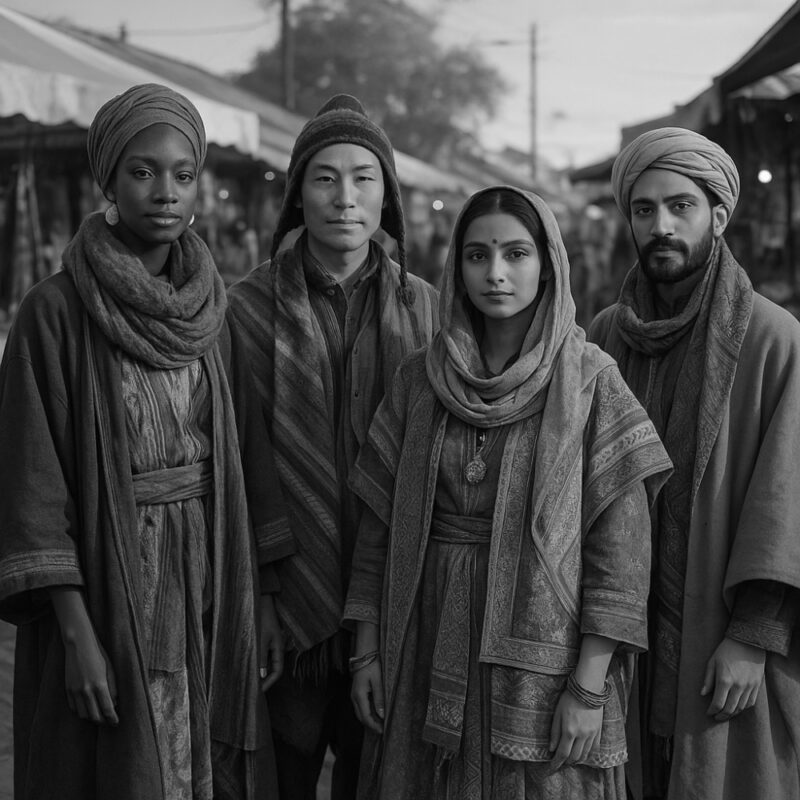Layers Of Identity In Everyday Dress
Clothing tells stories beyond the surface. Around the world, the practice of layering garments reflects more than climate or comfort. It speaks of heritage, symbolism, and shifting identity. The idea of cultural clothing layers shows how traditions influence the way people adapt outfits for every season, making fashion a bridge between necessity and meaning.
The Function And Origins Of Cultural Clothing Layers
Layering began with practical needs. In colder regions, layers of wool, fur, or padded garments offered insulation, while lighter inner fabrics allowed for flexibility indoors. In warmer climates, looser drapes of cotton or linen were layered to keep air circulating while shielding skin from sun. These functional roots explain why cultural clothing layers developed uniquely across landscapes.
Symbolism Carried In Layers
Layers often act as silent markers of tradition. In Japan, the kimono once displayed wealth and status through the quality and order of its folds. In India, garments like the sari and dupatta balance elegance with modesty, each drape carrying meaning beyond appearance. Even in Europe, waistcoats, cloaks, and capes served layered roles, marking formality or ceremony. These examples show how layering often conveys identity alongside practicality.
Seasonal Variations In Layering Traditions
The rhythm of seasons shapes layering practices in different ways. Scandinavia favors thick sweaters and outer shells for winter endurance, while Mediterranean wardrobes transition with lightweight shawls that bridge breezy evenings and hot afternoons. In desert regions, long robes and head coverings layer strategically to keep cool. Traditional layering evolves with seasonal needs, leaving a lasting imprint on regional style.
Cultural Clothing Layers In Modern Fashion
Designers increasingly draw inspiration from heritage layering. Japanese silhouettes influence contemporary streetwear, while ponchos and wraps from Latin America are reimagined on luxury runways. By blending cultural references with new fabrics, modern fashion reinvents layered looks without losing touch with their origins. This exchange between past and present reveals how traditions continue to shape global style.
Everyday Inspiration From Cultural Clothing Layers
Layering rooted in culture isn’t reserved for fashion shows. Many people incorporate elements into daily life without even realizing it. A scarf worn for warmth may echo traditional draping; a structured jacket over softer fabrics reflects long histories of combining function with elegance. Drawing on cultural layering practices allows everyday style to feel both practical and expressive.
Building A Wardrobe With Cultural Awareness
Understanding the role of cultural clothing layers can guide smarter wardrobe choices. A lightweight kimono jacket, a handwoven shawl, or a tailored vest inspired by tradition can become versatile staples. Choosing pieces that nod to cultural origins ensures layering remains meaningful rather than reduced to trend cycles. Shopping this way allows wearers to honor heritage while still dressing with practicality.
Layering And Identity In A Modern World
In a globalized society, layering becomes a way of balancing heritage with modern living. Immigrant communities may combine garments that reflect both cultural identity and city style. Fashion students experiment with traditional layering systems to create new voices in design. These choices prove that layering is not fixed in the past — it is an evolving tool of identity in the present.
Layers As A Living Tradition
Layers are more than stacked fabrics — they are living traditions passed across generations, adapting to climate, occasion, and personal expression. Cultural clothing layers remind us that fashion is not only about appearance but also about connection. When worn with awareness, they link modern wardrobes to histories that continue to unfold in every fold, drape, and seam.






